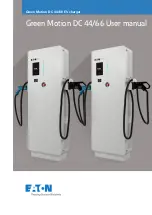
X
Disconnect the battery (
Y
page 352) or
connect it to a trickle charger.
i
You can obtain information about trickle
chargers from a qualified specialist work-
shop.
If you leave the vehicle parked up for longer
than six weeks, the vehicle may suffer dam-
age as a result of lack of use.
X
Visit a qualified specialist workshop and
seek advice.
Driving tips
General driving tips
Rolling with the engine switched off
G
WARNING
Never switch the engine off while the vehicle
is in motion.
There is no power assistance for the steering
and the service brake when the engine is not
running.
You will require considerably more effort to
steer and brake, and you could therefore lose
control of the vehicle and cause an accident.
Driving short distances
!
Vehicles with a diesel particle filter: if
the vehicle is mostly driven for short dis-
tances, it is possible that malfunctions may
occur during the automatic cleaning of the
diesel particle filter. This may lead to fuel
collecting in the engine oil and cause
engine failure. Therefore, if you frequently
drive short distances, you should take a 20
minute trip on a motorway or rural road at
least every 500km.
Brakes
Important safety notes
G
WARNING
Do not change down for additional engine
braking on a slippery road surface. This could
cause the drive wheels to lose their grip and
the vehicle could skid.
G
WARNING
Make sure that other road users are not
endangered by your braking.
Downhill gradients
On long and steep downhill gradients, espe-
cially if the vehicle is laden or towing a trailer,
you must shift to a lower gear in good time or,
on vehicles with automatic transmission,
select shift range 1, 2 or 3.
i
This also applies if you have activated
cruise control, SPEEDTRONIC or DIS-
TRONIC PLUS.
This will use the braking effect of the engine,
so less braking will be required to maintain
the speed. This relieves the load on the brake
system and prevents the brakes from over-
heating and wearing too quickly.
Heavy and light loads
G
WARNING
Never depress the brake pedal continuously
while the vehicle is in motion, e.g. never cause
the brakes to rub by applying constant slight
pedal pressure. This causes the brake system
to overheat, increases the braking distance
and can lead to the brakes failing completely.
If the brakes have been subjected to a heavy
load, do not stop the vehicle immediately, but
drive on for a short while. This allows the air-
flow to cool the brakes more quickly.
If the brakes have been used only moderately,
you should occasionally test their effective-
ness. To do this, brake more firmly from a
178
Driving tips
Driving
and
parking
Summary of Contents for E-Class 2011
Page 2: ......
Page 3: ......
Page 5: ......
Page 43: ...40 ...
Page 83: ...80 ...
Page 105: ...102 ...
Page 155: ...152 ...
Page 231: ...228 ...
Page 291: ...288 ...
Page 337: ...334 ...
Page 381: ...378 ...
Page 405: ...402 ...
Page 406: ...403 ...
Page 407: ...404 ...
Page 408: ......
Page 409: ......
















































